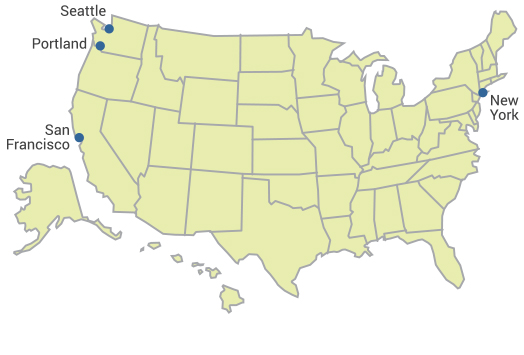
NYC's Food Waste Recycling Programme
Next time our government says Hong Kong is too dense and complex to consider recycling most of its food waste any time soon, they should look to New York as an example.
Turning waste to energy
The world's eighth largest urban agglomeration has become the first major city in East Coast USA to enforce mandatory food waste recycling with the goal of diverting 75 per cent of solid waste from landfills by 2030. New York currently produces about 14 million tons of waste a year. About a tenth of that is food waste that is buried in landfills every year at a cost of nearly US$80 per ton.
NYC's forward-thinking mayor
The Mayor of New York Michael Bloomberg (of the trans-fats ban fame) intends to get the operation running no later than the start of next year and to have mandatory composting in place by 2016. If everything goes according to plan, all 8.2 million residents of America's most populous city will have to segregate and package their food scraps and other organic materials such as pot plants and eggshells, for pick-up by special collectors. The programme will be voluntary at first and eventually mandatory. Fines will be imposed on those who fail to comply a few years down the line.
The city has recently hired an operator of waste-to-energy plants to convert about 800,000 tons of its solid waste a year into electricity starting in 2015.


Other US cities
In San Francisco, the second densest city in the US, a similar programme begun 16 years ago in restaurants, has started to bear fruit. In 2009 an ordinance was passed requiring all residents to separate organic material from other solid waste for collection. The city now diverts close to 80 per cent of waste that would otherwise be sent to a landfill, bringing benefits to taxpayers and the environment. Other smaller cities such as Portland and Seattle also recycle their leftovers.
By comparison, New York was late to start due to its population density and its having a great number of high-rises. Bloomberg, who calls food waste NYC's 'final recycling frontier', says, 'If a city as massive and complex as New York can have mandatory composting, it can happen just about anywhere.'
What about the EU?
In the European Union, an average of 40 per cent of waste is composted or recycled. The best-performing countries, namely, Norway, Sweden, the Netherlands, Denmark, Switzerland, Belgium, Austria and Germany now send under three per cent of their waste to landfills. Copenhagen stopped sending organic waste to landfills as far back as 1990. Other nations, such as Greece and some Eastern European countries, however, lag far behind.



